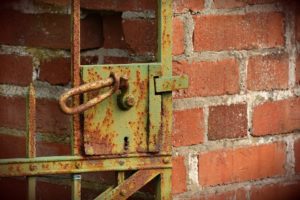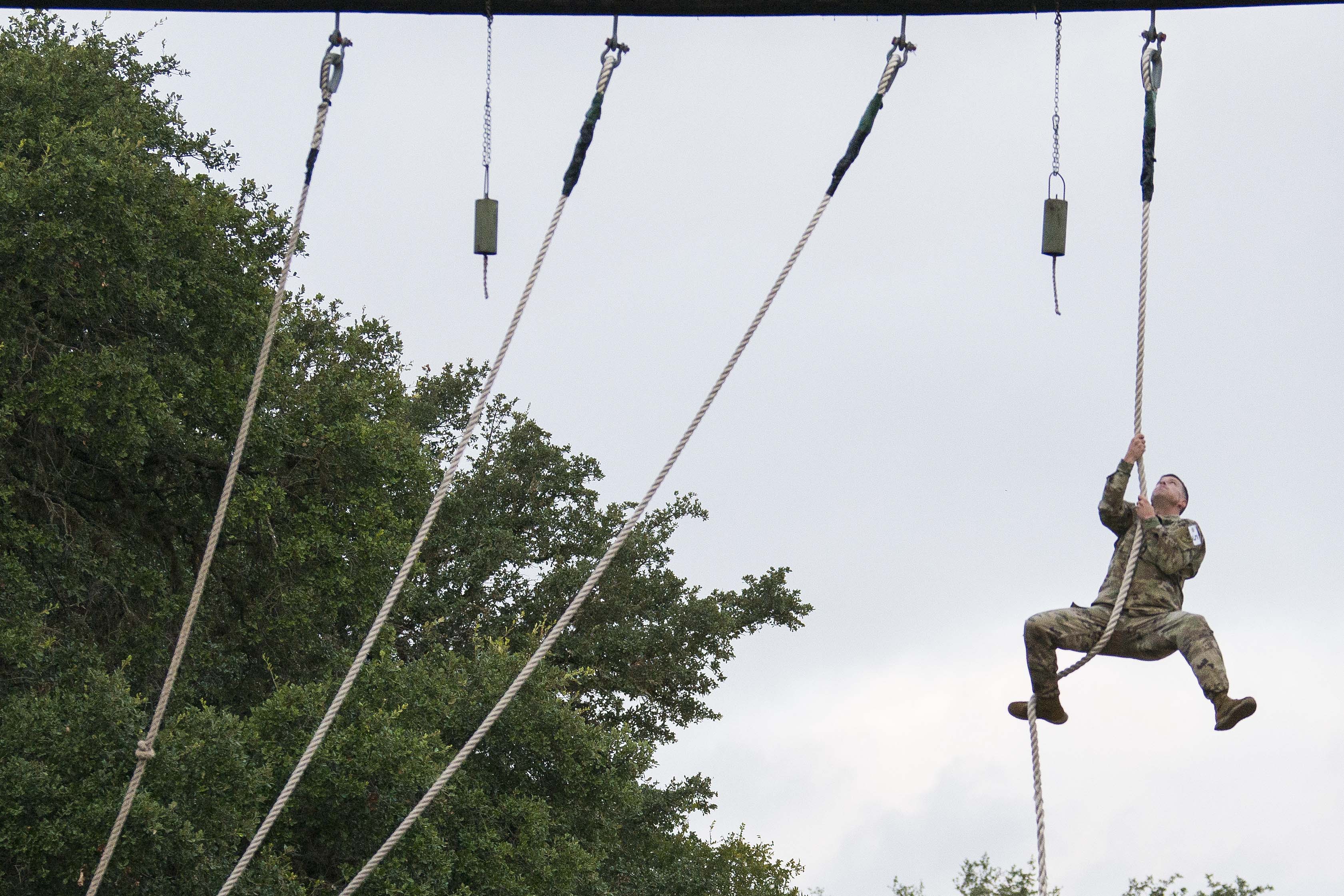
Life throws a lot of crap at you. Forget life, PEOPLE throw a lot of crap at you. It was happening when you were in the military, and it happens now that you’re out. How do you protect against it?
What if you’re leaving yourself vulnerable to attack?
Imagine your core sense of self as a castle tower. Inside that tower is everything that is important to you, personally. Your hopes. Your dreams. Your sense of safety. Your values. Everything that you think is right, everything you think is wrong, everything that matters to you is stored inside this tower. How do you protect it?
The Impenetrable Tower

Establishing an impenetrable defense is a good way to keep from getting hurt…and a good way to isolate yourself, which is not helpful
Some veterans I work with have constructed impenetrable defenses around that tower to ensure that no one gets in. Not nobody, not nohow. There are twenty foot high steel walls, electrified, with concertina on the top, surrounded by a moat. The moat has sharks in it, and aligators. Beyond the moat, a minefield. And more walls. Just for good measure, they randomly fire artillery from inside these defenses, lashing out at whoever happens to be around, just to make sure people know that they should keep their distance.
The Vulnerable Tower
 Other veterans I’ve worked with leave their tower totally unprotected. No walls, no defenses, open for anyone to come along to poke at whatever the veteran wants to protect. Sometimes, this is because we’re too busy trying to protect others. Trying to build the defenses for our kids, our spouses, random strangers that happen to be in need. We spend so much of ourselves in trying to help others, protect others, shield others, do for others, that we have no energy or resources to protect ourselves.
Other veterans I’ve worked with leave their tower totally unprotected. No walls, no defenses, open for anyone to come along to poke at whatever the veteran wants to protect. Sometimes, this is because we’re too busy trying to protect others. Trying to build the defenses for our kids, our spouses, random strangers that happen to be in need. We spend so much of ourselves in trying to help others, protect others, shield others, do for others, that we have no energy or resources to protect ourselves.
Other times, veterans will leave themselves unprotected because they’ve learned that there’s no use in protecting yourself. It never works. Any time they start to build defenses, someone comes along and ridicules them. Mocks them for trying to protect themselves. Telling them that there’s no need to do that, they have no right to do that. The veteran learns to believe that nothing they do will make a difference, so why try? A by-product of learned helplessness, this can lead to apathy and depression.
The Two Extremes
So the veteran leaves themselves completely vulnerable, or completely isolated. Neither of these things are very healthy; we move between allowing people to come in close and mess with our stuff, and keeping people miles away from our stuff. What if, instead, we built some logical defenses to balance that out?
Sure, set up walls. We need to protect ourselves from people who want to tear us down for their own amusement. A colleague of mine is fond of saying, “50% of the people around you don’t care that you have a problem. The other 50% are glad that you do.” It’s an honest fact that there are people who are miserable in their own lives, and do what they can to spread that misery. Do you want someone like that close to you?
We also, however, need to be able to let people in close to us, people who matter. People we trust. Because we, humans, are social organisms, and do our best work when we work with others. It doesn’t have to be an all-or-nothing proposition, however; we can decide who stands next to us, who stands a little farther away, and who we keep outside the walls.
Establishing a Balanced Defense
Consider a castle with concentric circles. You have the area close to you, next to your tower, which is surrounded by a wall. In the wall is a gate, which you control. Beyond that wall is an open space. And an outer wall beyond that. You have people in your life that you let into the inner circle…your family, your closest friends. Those who you absolutely trust. In the outer circle, you allow those who may help you, or they may not. The people in this circle may one day move through the gates to your inner circle; unfortunately, sometimes, the people in this open space once were allowed on the inside. For those who you don’t know, or have shown themselves to be absolutely untrustworthy, they are put outside the castle walls.

Finding a balance between protection and vulnerability can ensure that you continue to be part of a social network while also keeping attacks at bay
Yes, those people in your inner circle may sometimes hurt you. Dash your hopes. Dismiss your dreams. That happens, because they’re human, and you’re human. If it happens rarely, then you know they’re good people. If it happens often, then you can evaluate whether or not you need them to be there. Realize, also, that you don’t need to abuse the people in your inner circle; don’t dump boiling oil on them, or set traps for them, or force them to stay in your inner circle because you need them. If that happens too much, you may find yourself outside THEIR castle walls.
Yes, sometimes you may let someone from the outer circle through the gates, and you misjudged them. It happens. They may get into your inner circle and start wreaking all kinds of destruction. At this point, acknowledge the lapse in judgment on your part, and firmly set a boundary that keeps the toxic individual from impacting your core sense of self. You don’t have to go to extremes, kick everyone out of the castle, and lock yourself away. Simply disconnect yourself from that person. Come to terms with the facts of what happened. Learn the lessons that keep it from happening again in the same way.
We don’t have to live according to extremes, with everyone having access to our core selves, or nobody having access to our core selves. We can choose who to let in and who to keep out. And it’s that choosing, that learning, that selecting, that will bring us closer to those who we can truly trust.
 The Head Space and Timing Blog is supported by the Colorado Veterans Health and Wellness Agency, a 501(c)3 Nonprofit in Colorado Springs, Colorado. The goal of the CVHWA is to provide military culturally competent mental health counseling to veterans and their spouses, regardless of characterization of discharge, time of service, or era of service. Our vision is to assist veterans to identify and remove barriers to their mental, physical, emotional, and behavioral wellness. For questions or inquiries, contact us!
The Head Space and Timing Blog is supported by the Colorado Veterans Health and Wellness Agency, a 501(c)3 Nonprofit in Colorado Springs, Colorado. The goal of the CVHWA is to provide military culturally competent mental health counseling to veterans and their spouses, regardless of characterization of discharge, time of service, or era of service. Our vision is to assist veterans to identify and remove barriers to their mental, physical, emotional, and behavioral wellness. For questions or inquiries, contact us!



2 Comments
Jim Jaeger · February 28, 2017 at 8:05 am
Great analogy! Thanks Duane
Jane Strong · February 28, 2017 at 9:47 am
What great visuals – as usual and a very important message. This is what we call the difference between barriers (that keep everyone and everything out) and setting healthy boundaries. Shutting down as in the first castle keeps everything good and bad out, with no discernment or distinctions. isolation is a very bad place to stay…as is the learned helplessness that ‘i’ve seen in vets who identify themselves as broken or overly dependent on outside sources to support them…including spouses. The third option is much more realistic, integrated and mature. Paying attention to one’s intuition and not leading with a story that’s all or nothing is key I think, to healthy boundaries that work in life. Also lead to a much more fulfilling one. Excellent Duane!
Comments are closed.